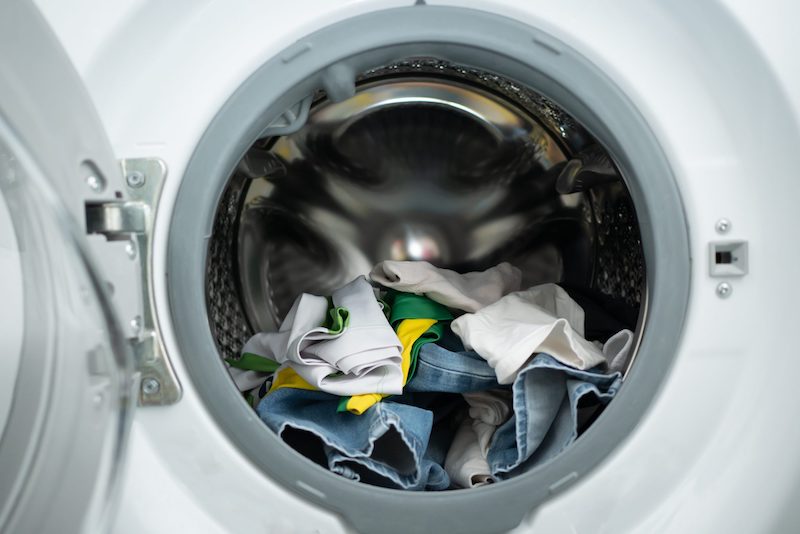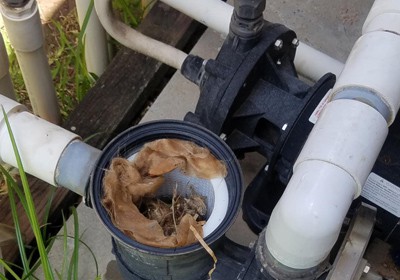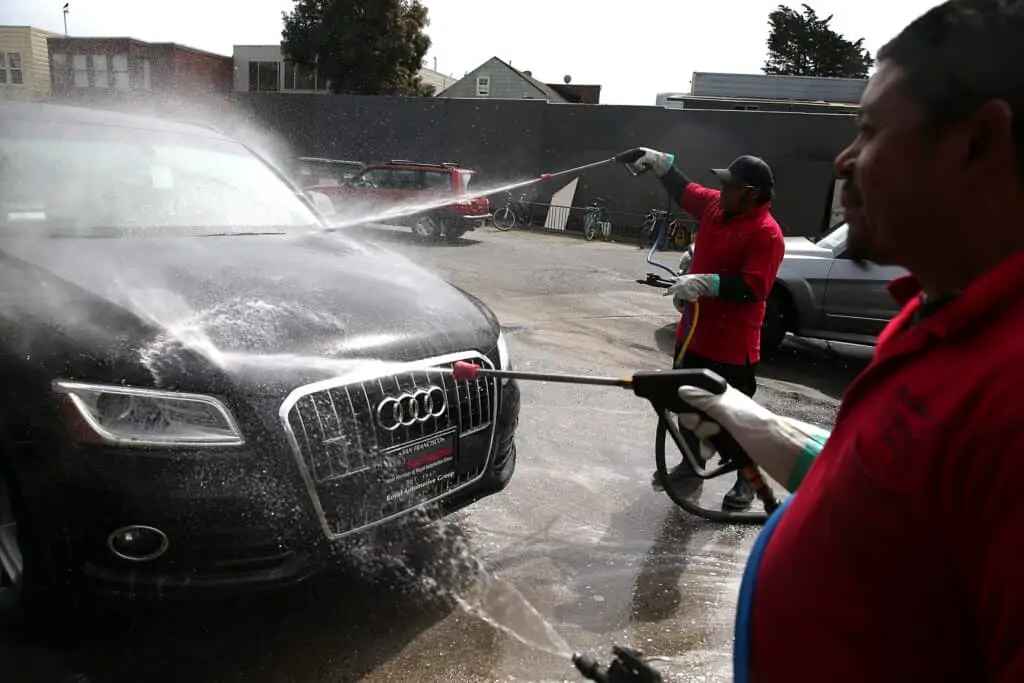A washing machine typically lasts between 10 to 13 years. Proper maintenance can extend its lifespan.
Must-Have Cleaning Essentials For Every Home (Recommended):

- Consistently delivers the same smell, color, and results - every time. For superior and safer cleaning performance, in and around your home.

- Great household product for anything that needs a bright new look! Use it as a cleansing booster with your laundry or dish detergent, as a pH buffer in swimming pools, or for cleaning kitchen surfaces.
Choosing a reliable washing machine is a smart investment for any household, given its essential role in daily chores. The longevity of your washing machine hinges on various factors, including brand, model, usage frequency, and maintenance routine. A well-cared-for machine not only serves you longer but also ensures better performance and energy efficiency.
It’s important to note that while average lifespans provide a general guideline, individual experiences may vary. Regular cleaning, prompt repairs, and understanding the machine’s capacity contribute to maximizing its years of service. Investing in a high-quality washing machine and adhering to its care instructions is key to getting the most out of your appliance.

Credit: www.hackensackmeridianhealth.org
The Lifespan Of Washing Machines
Imagine a home without a washing machine. Piles of laundry and hours of hand-washing. Thankfully, modern washing machines save the day. But they don’t last forever. Let’s dive into how long you can count on your trusty appliance.
Average Duration
Most washing machines offer a good 10 to 15 years of service. But not all. Some may call it quits earlier, while others keep spinning beyond these years. It’s all about how they’re made and used.
Factors Impacting Longevity
Different elements influence how long a washing machine lasts. Below, we explore these factors:
- Build Quality: Machines with robust motors and sturdy parts tend to outlive others.
- Usage Frequency: More wash cycles can mean a shorter life.
- Maintenance: Regular cleaning and servicing can extend a machine’s life.
- Water Hardness: Hard water leads to deposits and can wear out machines faster.
- Load Size: Overloading can cause early wear and tear.
- Model and Brand: Some brands and models are known for their longevity.
Regular maintenance and responsible usage are key. They help ensure your washing machine lives a full and productive life.
Determinants Of Durability
When buying a washing machine, understanding what makes one last is key. Let’s explore the ‘Determinants of Durability’ for these essential home appliances.
Build Quality And Materials
The longevity of a washing machine starts with its construction. High-grade materials mean a longer life.
- Stainless steel drums resist rust and corrosion better than plastic.
- Units with fewer electronic components may outlast more complex models.
- Look for brands with a reputation for durable machines.
Usage Frequency
The number of wash cycles can impact a machine’s lifespan. Regular maintenance is crucial.
| Average Loads per Week | Impact on Durability |
|---|---|
| 1-5 loads | Lower wear and tear |
| 6-10 loads | Moderate impact |
| 10+ loads | Higher risk of breakdowns |
Balance usage with regular upkeep to extend your machine’s life.
Maintenance Tips For Longevity
Want your washing machine to last longer? Good maintenance is key. Simple habits can extend your machine’s life. Follow these tips to keep your washer running smoothly for years.
Regular Cleaning
Keep your washer fresh and efficient with regular cleaning. Dirt and detergent can build up over time. This build-up can cause odors and affect performance.
- Wipe the drum, door, and gasket after each use.
- Clean detergent dispensers monthly.
- Run an empty hot water cycle with vinegar to remove residue.
- Leave the door open after use to air out the washer.
Clean filters and hoses once a year to prevent clogs. A clogged machine works harder, which can lead to wear and tear.
Prompt Repairs
Don’t ignore small issues. A quick fix can prevent bigger problems. Listen for strange noises and watch for leaks.
- Check seals and hoses regularly for signs of wear.
- Replace worn or damaged parts immediately.
- Contact a professional if you’re unsure about a repair.
Addressing issues promptly can save you money. It can also keep your machine in top condition.
These simple steps can make a big difference. They can help your washing machine work better and last longer. Treat your machine well and it will do the same for your clothes.
Common Issues And Solutions
When we invest in a washing machine, we expect it to serve us well for many years. But like any appliance, it faces its share of issues over time. Knowing the common complications and their fixes can help extend the lifespan of your washing machine.
Wear And Tear Complications
Washing machines work hard to keep our clothes clean. But constant use can lead to wear and tear. Let’s look at some issues and how to solve them:
- Drum bearings might need replacement after heavy use.
- Door seals can become loose or damaged, leading to leaks.
- Water hoses can wear out and require changing to prevent leaks.
Regular maintenance, like checking and replacing parts, can prevent bigger problems.
Troubleshooting Minor Problems
Small issues often have simple solutions. Here’s a quick guide to troubleshooting:
| Issue | Solution |
|---|---|
| Machine won’t start | Check the power supply and circuit breaker. |
| Odd noises | Make sure the machine is level and check for loose items. |
| Won’t drain | Clean the filter and check the drain hose. |
Often, these steps can fix minor issues without professional help.
Upgrading Your Washing Machine
Thinking about upgrading your washing machine? This could be the perfect time! A new machine can offer better efficiency, advanced features, and even save on energy costs. Let’s explore when to replace your old model and what new technologies are available.
When To Consider Replacement
- Machine age exceeds 10 years
- Frequent repairs needed
- Efficiency has dropped, leading to higher bills
- It stops meeting your family’s needs
Noticing these signs? It might be time for an upgrade. A new machine can be a smart investment.
New Technologies
| Technology | Benefits |
|---|---|
| High-Efficiency Models | Use less water and energy |
| Smart Washers | Connect to Wi-Fi for remote control |
| Steam Cycles | Remove tough stains |
| Automatic Dispensers | Use the right amount of detergent |
These technologies make laundry easier and more effective. They also help save on your utility bills.

Credit: hometownheroappliancerepair.com
Economic Considerations
Thinking about the lifespan of a washing machine involves more than just its physical endurance. Economic considerations play a vital role. They shape the decision to repair, keep, or replace a machine. Let’s dive into the economic side of washing machine longevity.
Cost-benefit Analysis
When assessing how long to keep a washing machine, the cost-benefit analysis is key. This means comparing the costs of repairs and maintenance against the price of a new machine. A simple rule is useful: If repair costs exceed 50% of a new machine’s price, consider a replacement. Remember to factor in potential savings from newer, more efficient models.
Energy Efficiency And Savings
Energy efficiency also influences the cost of operating a washing machine. Newer models often carry Energy Star ratings, signifying lower electricity and water usage. This can lead to significant savings on utility bills.
| Feature | Old Machine | New Machine |
|---|---|---|
| Energy Use | Higher | Lower |
| Water Use | Higher | Lower |
| Utility Bills | More Expensive | Less Expensive |
By choosing a machine with better energy ratings, households can enjoy lower running costs. This makes a new, efficient machine a smart long-term investment. Over time, these savings can offset the initial purchase cost.
Environmental Impact
The lifespan of a washing machine not only affects your wallet but also the environment. As consumers, it’s crucial to understand the consequences of our choices. From the resources required to build new machines to the disposal of old ones, each step has an environmental cost. Let’s explore how we can mitigate these impacts.
Recycling Old Machines
Proper disposal of washing machines is key to minimizing environmental harm. When a washing machine reaches the end of its life, recycling it prevents valuable materials from going to waste. Here are steps to ensure responsible recycling:
- Locate a nearby recycling center specializing in appliances.
- Check if the manufacturer offers a take-back program.
- Donate to local charities if the machine is still functional.
Recycling helps recover metals, plastics, and other materials. This process reduces the need for new resources and the energy consumed in manufacturing.
Eco-friendly Models
Choosing eco-friendly washing machines is a step forward in reducing environmental impact. These models are designed to be more energy and water-efficient. Consider these features when selecting a new washer:
| Feature | Benefit |
|---|---|
| Energy Star Rating | Less power use, lower utility bills. |
| Low Water Usage | Conserves water, less waste. |
| Longer Lifespan | Reduces frequency of replacement. |
By selecting machines with these features, users support a sustainable future. Look for brands committed to eco-friendly practices and materials.
:max_bytes(150000):strip_icc()/how-long-does-a-washing-machine-last-5272534-hero-cd6f5ea24aa240d989148c9ab7cbbdc6.jpg)
Credit: www.thespruce.com
Consumer Reviews And Research
Exploring consumer reviews and research helps us understand washing machine longevity.
Brand Reliability
Reliable brands often lead to longer-lasting appliances. Users regularly praise brands like Whirlpool, LG, and Samsung for their durability. A study by a leading consumer magazine confirms this, noting these brands outperform in longevity tests.
- Whirlpool: Known for efficient and durable models.
- LG: Offers advanced technology with robust build quality.
- Samsung: Innovates with features that enhance lifespan.
Product Lifespan Testimonials
Personal experiences from users provide valuable insights into product lifespan. Here are some key testimonials:
| Brand | Testimonial |
|---|---|
| Bosch | “My Bosch model ran perfectly for over 12 years!” |
| Maytag | “Owned a Maytag for 15 years without a hitch.” |
| GE | “GE washers are tanks. Mine is going strong at 10 years.” |
These stories reflect how some brands ensure their machines stand the test of time.
Frequently Asked Questions
Is It Worth Repairing A 7 Year Old Washing Machine?
Repairing a 7-year-old washing machine can be cost-effective if the repair is minor and the machine is of high quality. Assess the repair cost against the price of a new model before deciding.
Can A Washing Machine Last 20 Years?
While uncommon, a washing machine can last 20 years with proper maintenance and careful use. Regular servicing and timely repairs are crucial for longevity.
How Often Should You Replace Your Washing Machine?
Typically, replace your washing machine every 10-13 years. Regular maintenance can extend its lifespan.
What Is The Maximum Life Of A Washing Machine?
The average lifespan of a washing machine is typically 10 to 13 years, depending on usage and maintenance.
Conclusion
Understanding the lifespan of your washing machine helps in making informed decisions about maintenance and replacement. Proper care can significantly extend its life, potentially surpassing the average 10-13 years. Remember, choosing a reliable brand and adhering to usage guidelines will maximize efficiency and longevity.
Prioritize regular upkeep to ensure your appliance runs smoothly for years to come.




